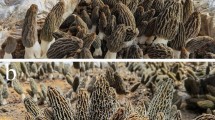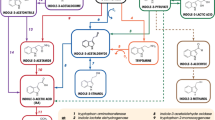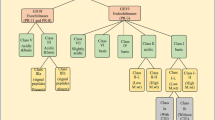Abstract.
Endopolygalacturonases (endoPGs) are plant cell wall-degrading enzymes that have been implicated in the invasion of plant tissue by pathogenic microbes. EndoPGs have been described from bacteria, plants, insects and numerous species of phytopathogenic fungi. In this study, we describe the first endoPG sequence from oomycetes, a unique group of eukaryotic plant pathogens that exhibit fungal-like filamentous growth but share little taxonomic affinity to fungi. The characterized gene, pipg1, was identified from the potato late-blight pathogen, Phytophthora infestans, and was predicted to encode a secreted glycoprotein with all the signature sequences of endoPGs. Pipg1 was expressed during preinfection and infection stages. Phylogenetic analysis of endoPGs indicated that pipg1 forms a unique class that is significantly more similar to fungal endoPGs than to plant or bacterial ones. This unexpected affinity between PIPG1 and fungal endoPGs contrasts with phylogenies obtained using ribosomal sequences or compiled protein sequences from mitochondrial and chromosomal genes, raising interesting questions about the evolution of these enzymes in oomycetes.
Similar content being viewed by others
Author information
Authors and Affiliations
Additional information
Electronic Publication
Rights and permissions
About this article
Cite this article
Torto, T.A., Rauser, L. & Kamoun, S. The pipg1 gene of the oomycete Phytophthora infestans encodes a fungal-like endopolygalacturonase. Curr Genet 40, 385–390 (2002). https://doi.org/10.1007/s00294-002-0272-4
Received:
Accepted:
Issue Date:
DOI: https://doi.org/10.1007/s00294-002-0272-4




